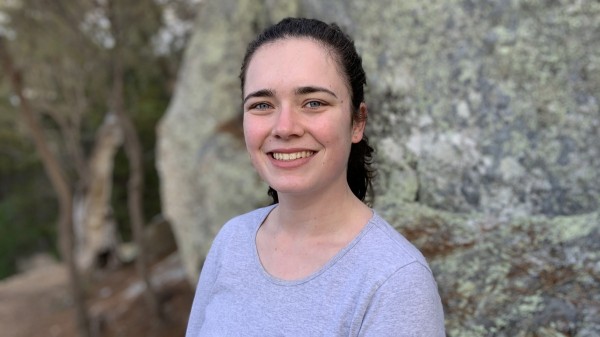Study Health Science (Honours) at ANU
Honours is a one-year program that you can take after completing a three-year Bachelor Degree in Health Science, or following completion of sufficient credits in cognate fields as part of a three or four year Bachelor degree. Honours is primarily research-based and, assuming a suitable supervisor can be found, students can pursue projects in all areas of the health sciences and related fields. This includes medical and clinical research, laboratory sciences, qualitative and quantitative social scientific research, and bioethics. There is also the opportunity to undertake transdisciplinary research.
An Honours in Health Science will generally be completed under the specialisation in Health and Medicine. However, as long as you meet the requirements for admission, it is also possible to undertake any of the other specialisations listed under the Honours in Health Science degree program. This includes the specialisation in Medical Research, which is taken by the majority of those who are supervised by academics based in the John Curtin School of Medical Research.
Key facts
What you will learn
An Honours year will be a different experience from your earlier years at university. It can also be a fairly unique experience. Honours can be a socially rewarding experience that involves interacting with a wide range of fellow students, researchers and academics. However, some projects will involve you working more or less on your own (with assistance, support and encouragement from your supervisors), whilst others may mean working very closely with a supervisor or as part of a team in a lab. In all cases, however, you will contribute to the direction of your work and how your research will proceed.
Pursuing an Honours year requires advance consideration and planning. You need to have an idea of topic(s) that interest you, the supervisors you might want to work with and perhaps what sort of project you might want to undertake. As of 2024 it should be possible to take a Research Project course as an elective during your Bachelor’s degree (TBC). This can allow students to begin to plan a project and to form a relationship with a potential supervisor.
Those who are considering pursuing the Honours programme in Health Sciences (or testing the waters via the proposed Research Project Elective) are encouraged to contact the convenor of the Honours in Health Sciences program, Dr Nathan Emmerich
What it's like to study Health Science (Honours)
Bryher's degree combines passions for health and climate justice
“People are so impacted by the climate that it is becoming a real health issue,” says Bachelor of Health Science student Bryher McKeown.
Meet some of your teachers

Dr Nathan Emmerich
Dr Nathan Emmerich is a bioethicist whose research primarily focuses on medical ethics. He is the lead for Professionalism and Learning in the Phase 1 of the ANU Doctor of Medicine and Surgery Degree (ANU College of Health and Medicine). He also contributes to bioethics teaching in the College of Science.
Health Science (Honours) careers
An Honours year can enable you to pursue a career as a research scientist as it can be a prelude to a PhD. Alternatively it may lead to a career in a health policy, perhaps via a Master’s degree in related fields, such as public health, epidemiology or medical anthropology. It may also open the door to a wider range of career options for those who intend to pursue a medical degree and will provide a sound basis for the kinds of (advanced) research projects students are required to undertake as part of the MChD program at ANU, and as part of equivalent degrees taught elsewhere. It will certainly benefit those who pursue education and career options that involve undertaking or engaging with research. Employers are increasingly looking for Honours graduates, even when the advertised job does not involve research. An Honours degree equips students with the analytical, technical, problem-solving and communication skills required to successfully tackle the challenges of any job.
Projects: Past and Future
In previous years students undertaking Honours in Health Sciences have written thesis with titles such as: Access to Services and Health Outcomes among Migrants Living in Rural and Regional Locations within Australia; Barriers and Facilitators of Performance for Public Health Workers Deployed to Emergency Response; and An Exploration of the Experiences and Perceptions of Young People with Type 1 Diabetes Mellitus and their Parents Regarding Young People’s Transition to Independent Self-Management.
The College of Health and Medicine and the School of Medicine and Psychology both maintain lists of potential research projects and supervisors. However, the majority of academic and research staff are able to supervise students who wish to undertake Honours level research, and most will support students in developing an idea. As such, discussing what may or may not be possible with a potential supervisor who shares your interests is always a good first (or second) step in making an application. As well as academics based on the Acton Campus, students can also work with those involved with the Rural Clinical School as well as ANU affiliated researchers based at either The Canberra Hospital and the Sydney Adventist Hospital.
Students can also be supervised by academics and researchers based in other parts of ANU and the College of Health and Medicine. This includes Regnet and the Institute for Communication in Health Care, for example. However, if you wish to pursue research in specific areas it can be worth carefully considering if taking particular electives during your Bachelor degree would be advisable. As this suggests, if you are interested in pursuing research at the Honours level, it is never too early to discuss your plans with someone who can provide you with effective advice.
Fees & scholarships
Tuition fees: Tuition fees
Scholarships: Scholarships
ANU offers many scholarships both to overcome disadvantage and to recognise academic merit.
How to apply
Apply for Honours
You can commence your Honours year either in late January/early February or in July. Honours programmes generally commence a few weeks earlier that the university’s semester dates. There are a limited number of Honours places available and there are limits on how many students a supervisor may take. Therefore, it is important to make your decision about Honours early. The application deadline is 15 December (February start) or 31 May (July start) with information sessions being scheduled towards the end of Semester 1 and the beginning of Semester 2.
There are two main entry requirements for admission to the Health and Medicine specialisation of the Honours in Health Sciences programme.
- A Bachelor degree with a major or equivalent in a cognate discipline with a weighted average mark equivalent to an ANU 70 per cent calculated from the 36 units (i.e. 0.75 EFTSL) of courses in the discipline, excluding 1000-level courses (i.e. introductory undergraduate courses), with the highest marks.
- And with the written approval of an identified supervisor.
At ANU Cognate Disciplines include Population Health, Health Science, Health Promotion, Psychology, Medicine, Allied Health disciplines, (Bio)Medical Science, Anthropology, Indigenous studies, Sociology, Demography.
However, you should be aware that specific specialisations may have their own requirements, commonly a more specific definition of what counts as a cognate course. For example, whist the requirements are the same, the specialisation in Medical Research specifies the following as the relevant Cognate Disciplines:
Biomedical science, biology, cell and molecular biology, microbiology and immunology, neuroscience, genetics, cancer biology, human biology, pathology, biochemistry, medicinal chemistry, pharmacology, physiology, biological psychology, quantitative biology, biophysics, computer science and mathematics
Perhaps the most important part of applying to undertake an Honours year is to identify a supervisor with whom you wish to work. Your supervisor should be an expert in the area of research and type of project you wish to undertake. Some supervisors will have projects that you might be able to join whilst others will encourage you to define, develop and refine a project for yourself. This will largely depend on the kind of study you wish to pursue. Depending on the Bachelor’s degree programme you are enrolled in, you may be able begin this process by taking a Research Project Elective. If you wish to discuss potential directions, you might wish to explore please contact the convenor Dr Nathan Emmerich.
Apply for Honours
You can commence your Honours year either in late January/early February or in July. Honours programmes generally commence a few weeks earlier that the university’s semester dates. There are a limited number of Honours places available and there are limits on how many students a supervisor may take. Therefore, it is important to make your decision about Honours early. The application deadline is 15 December (February start) or 31 May (July start) with information sessions being scheduled towards the end of Semester 1 and the beginning of Semester 2.
There are two main entry requirements for admission to the Health and Medicine specialisation of the Honours in Health Sciences programme.
- A Bachelor degree with a major or equivalent in a cognate discipline with a weighted average mark equivalent to an ANU 70 per cent calculated from the 36 units (i.e. 0.75 EFTSL) of courses in the discipline, excluding 1000-level courses (i.e. introductory undergraduate courses), with the highest marks.
- And with the written approval of an identified supervisor.
At ANU Cognate Disciplines include Population Health, Health Science, Health Promotion, Psychology, Medicine, Allied Health disciplines, (Bio)Medical Science, Anthropology, Indigenous studies, Sociology, Demography.
However, you should be aware that specific specialisations may have their own requirements, commonly a more specific definition of what counts as a cognate course. For example, whist the requirements are the same, the specialisation in Medical Research specifies the following as the relevant Cognate Disciplines:
Biomedical science, biology, cell and molecular biology, microbiology and immunology, neuroscience, genetics, cancer biology, human biology, pathology, biochemistry, medicinal chemistry, pharmacology, physiology, biological psychology, quantitative biology, biophysics, computer science and mathematics
Perhaps the most important part of applying to undertake an Honours year is to identify a supervisor with whom you wish to work. Your supervisor should be an expert in the area of research and type of project you wish to undertake. Some supervisors will have projects that you might be able to join whilst others will encourage you to define, develop and refine a project for yourself. This will largely depend on the kind of study you wish to pursue. Depending on the Bachelor’s degree programme you are enrolled in, you may be able begin this process by taking a Research Project Elective. If you wish to discuss potential directions, you might wish to explore please contact the convenor Dr Nathan Emmerich.
Need more information?
Send us an enquiry and we'll get back to you within 48 hours









